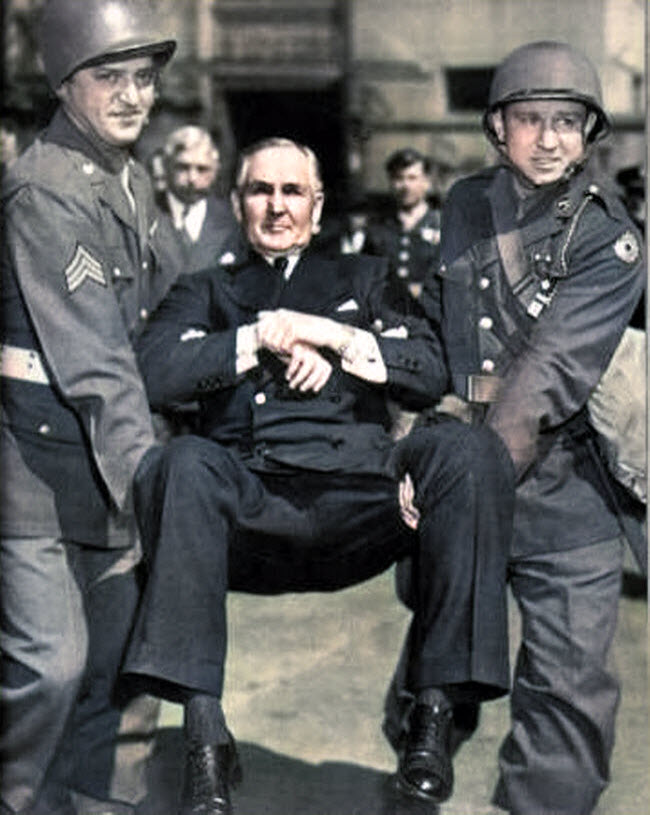Date: April 26, 1944
Photographer: American Harry Hall – Photographer for the Associated Press.
Details: The background of this photo dates back to World War II and involves a conflict between the Montgomery Ward Company, represented by its president Sewell Avery, and the U.S. government under President Franklin D. Roosevelt. The company supplied the Allies with essential war materials, such as tractors, auto parts, and workers’ clothing, which were crucial for the war effort, including ammunition and firearms. Despite the company’s growing wealth from these contracts, it refused to comply with certain government agreements and decisions, leading to a clash that significantly impacted the U.S. economy. This conflict prompted the U.S. government to issue an order to seize and place the company under government control.
When the decision reached Sewell Avery, he refused to comply and insisted on going to his company’s headquarters the next day to sit at his desk. President Roosevelt then ordered the National Guard to take over the company’s main office in Chicago and hand it over to the Department of Commerce. Upon Avery’s arrival and his insistence on remaining in his seat, he was forcibly removed and taken out of the company headquarters as shown in the photograph. The event was covered by newspapers through their reporters and photographers, including Harry Hall, who captured the moment and sent it immediately to his news agency. It was the first image of the event and made headlines in American newspapers, creating a significant stir in American society.
Photographer Harry Hall, who took the picture, described Avery’s defiance as palpable. He was prepared for the confrontation between Avery and the executing troops, waiting to see what would happen. Suddenly, the door opened, and Avery emerged being carried by two soldiers. Hall captured the moment and continued to photograph as Avery was escorted to his car, where his driver awaited him. Hall documented the scene with his camera, capturing Avery’s smiling demeanor as he was led away.
Notably, even after this incident, Sewell Avery continued to challenge the U.S. government. Frustrated with Avery’s defiance and lack of respect for governmental authority, President Roosevelt ordered on December 27 of the same year the nationalization of Montgomery Ward’s factories and facilities in other states, including New York, Michigan, California, Illinois, Colorado, and Oregon.
